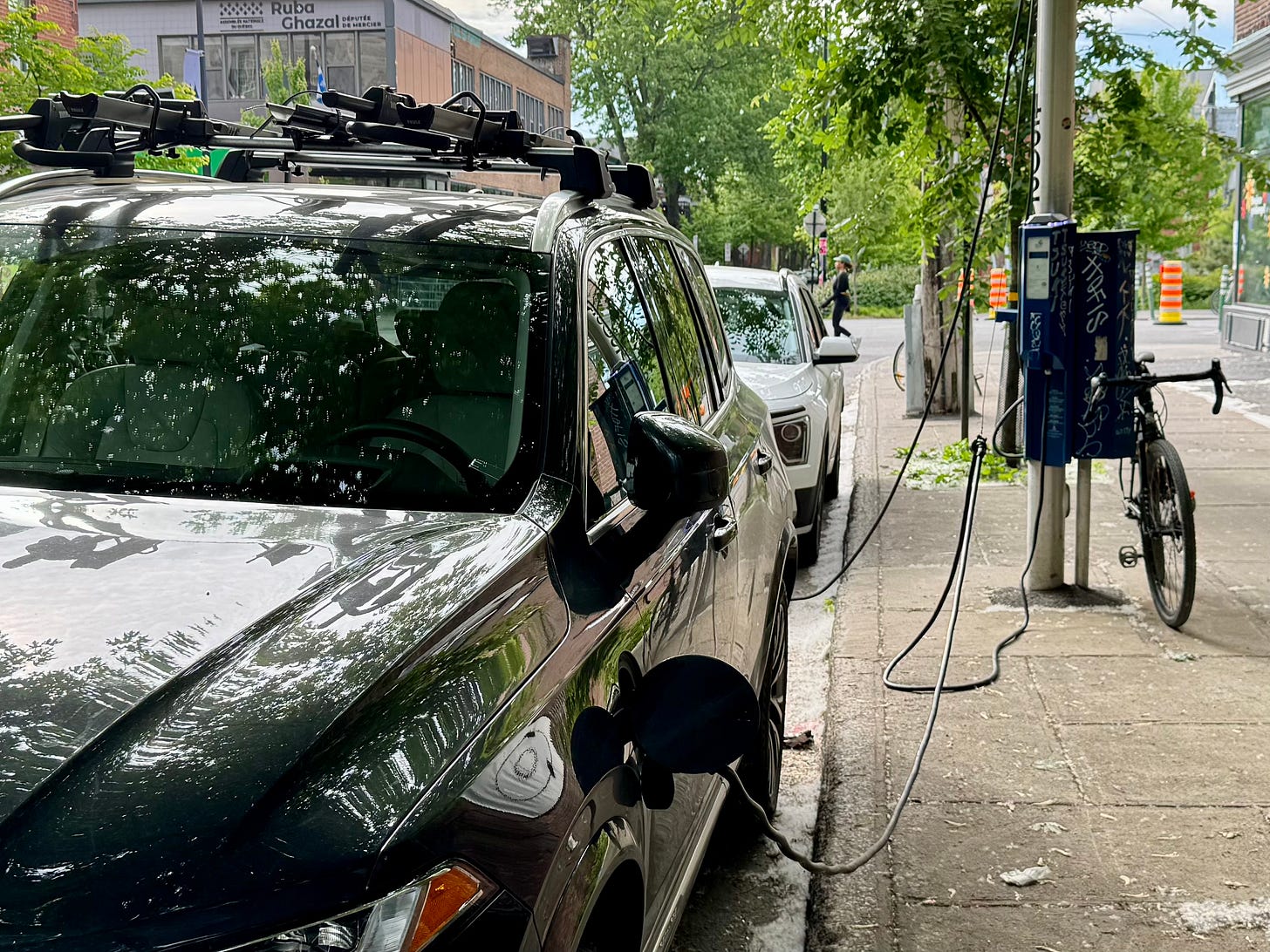MIA on Climate Action
Ottawa City Council is unsure if their job is simply to be a good caretaker of municipal assets, or to lead the community to a greener future.
The City’s Auditor General released her audit of the Climate Change Master Plan. Her findings and the City report can be summarized as follows:
AG: You’re falling short on climate action.
City: Yes, but it’s OK. We did a reorg!
I don’t find that answer good enough. I’ve all seen enough reorgs that did little more than shuffle the deckchairs. So, I showed up at the City’s Audit Committee earlier this week to pose six more fundamental questions that Council should be considering around climate change.
1. Is our climate plan a burden or an opportunity?
Climate skeptics on Council like to point out that the City’s proposed climate plan costs $32 billion over 30 years.
What they fail to mention is that this is spending by the entire community. In other words, it includes the City retrofitting its arenas. But it also includes you buying an EV. And the federal government installing a district heating system in the parliamentary precinct. And so on.
What they also fail to mention is that $32 billion in spending results in $44 billion in savings and new revenues. In other words, a $12 billion net win.

2. What is the role of City Hall in climate action?
Emissions from City operations amount to 4% of total emissions in Ottawa. Households, businesses and other organizations account for the other 96%.
So what is the role of City Hall?
Our climate change master plan says it is to lead the full community to a better tomorrow.
This administration’s term of Council priorities says that it is about reducing their own corporate emissions.
So on climate, is City Hall a leader of the entire municipality or just a caretaker responsible for keeping its own house in order?
3. What if community action requires City Hall action first?
There are many situations where you as an individual, family, business or other organization cannot take climate action because you need the city to act first.
Consider the switch to electric vehicles, and people who have a car but no driveway.
Where do they charge? In the case of other cities, municipalities put charging stations right on the street. In Montreal, there are hundreds of on-street chargers.
Only the municipality can make that happen. Does Ottawa have any on-street EV chargers yet?
4. What about regulatory actions that come at no cost to the City?
There is a lot of climate action that a city can take that costs them nothing.
Particularly when it comes to buildings, which typically accounts for more than a third of total emissions in a city.
As part of its zoning, cities can implement “high performance development standards” for new constructions, requiring energy efficiency levels above those in the building code. Toronto, Montreal and Vancouver do this.
Cities can also require building performance standards for existing buildings — primarily large commercial ones — to mandate improved energy standards through retrofits. 50 states or cities in the US already do this. As does Vancouver. Toronto and Montreal are designing their programs now.
5. Does Council even think climate action is required?
There are a number of Councillors who are clearly committed to climate action.
But there are other Councillors who seem to think why bother? I’ve heard them say that we are a tiny share of global emissions. I’ve heard them say that technology will fix our problems.
I’ve addressed the what about China? issue in another post, but to sum up, climate change is a shared problem that requires all of us to play a role.
Perhaps the more important immediate is that emissions are also air pollution. In the case of Ottawa, these include tailpipe emissions that we all breathe in.
The fact that 2 out of 10 teenagers has asthma is a direct result of burning fossil fuels. As are the 15,000 premature deaths related to air pollution in Canada each year.
6. What happened to our promise to do annual emissions reporting?
As part of its climate change master plan, the City committed to annual reporting on emissions levels.
That lasted for one year.

With the pandemic, emissions went down in 2020. But what has happened to them since? Are we on track to reduce emissions by 43% from 2012 levels, as per our target?
The big question for Council
This all leaves us with one overarching question for Council.
On climate, are you leaders or caretakers?
Do you use your authority to lead the community in reducing its 96% share of emissions? Or do you step back from your climate plan and only take responsibility for your 4% direct share?
For any Councillors reading this and pondering their answer, that was a rhetorical question. The people of Ottawa expect our elected leaders to lead.







Great submission, Neil.